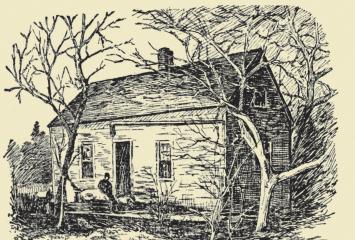
Plymouth County, Massachusetts Freeperson Families in 1790
AN IMPORTANT NEW SOURCE FOR RESEARCHING PERSONS OF COLOR IN MASSACHUSETTS
By Mary Blauss Edwards
Foreword by Kerri Greenidge
6 x 9 paperback, 404 pages
Published by American Ancestors in July 2024
Mary Blauss Edwards has researched every person of color who was listed as a head of household in Plymouth County in the 1790 Census—the first Federal Census of the new United States. Taken seven years after the abolition of slavery in Massachusetts, Tufts University Associate Professor Kerri Greenidge points out that this census illustrates the “fluidity of racial categories in Massachusetts.” Most of these Plymouth County residents were black and Wampanoag/Massachuset Indian soldiers in the Revolutionary War who purchased their freedom using bounty money from their service. Blauss Edwards details the contributions of people of color to the Plymouth economy through their labor as seamen, blacksmiths, ministers, and common laborers. The 1790 Census in Massachusetts captures a remarkable moment in history, documenting the families of newly manumitted families navigating the complicated domestic, social, and economic realities of transitioning from slavery to freedom in the only American state which fully endorsed total abolition.
This book contains detailed sketches for 28 heads of household with surnames Ashport, Augustus, Clap/Clapp, Cordner, Craine/Crane, Easton, Fuller, Goodwin, Hart, Howe, Hubbard, Jotham, London/Lonnon/Loudon, Negro, Nicolson/Nicholson/Nickerson, Peirce/Pierce/Pearce, Phelps, Quande, Richards, Stavan/Stevens, Torbet/Talbot/Talbert/Tarbet/Tarbil/Tarbot, Turner, White, and Wright.
From the Foreword:
“It is no small feat ... that Mary Blauss Edwards has compiled a study of the 1790 Federal Census in Plymouth County, Massachusetts that adds so significantly to African and Native American genealogy in New England.... Plymouth was a center of the Massachusetts slave market, as well as a significant site of African and Native American community. For the first time, and due to [Blauss Edwards’s] meticulous work, scholars will have access to the names of these ‘all other persons’ ... whose Revolutionary War participation, home ownership, and fight for equality failed to shield them from the racism that surrounded them.”
—Kerri Greenidge, Associate Professor, Tufts University